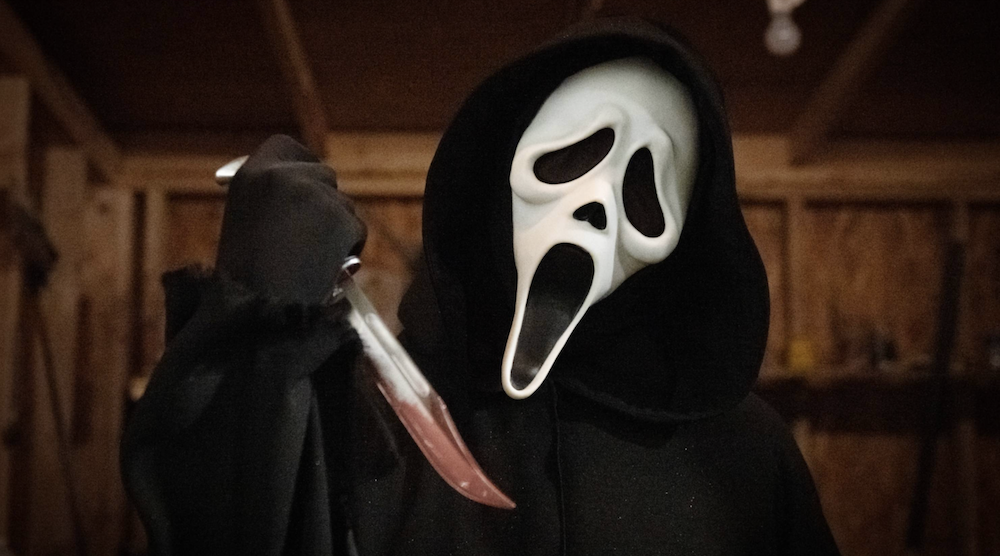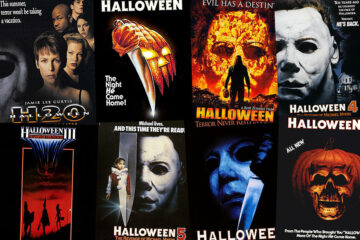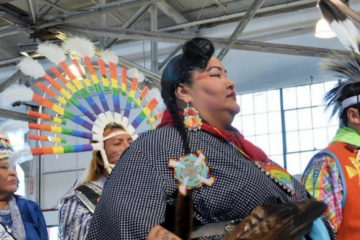How Scream Changed Horror Films
Scream changed horror films when it was released in 1996. Its legacy is especially notable in my favorite subgenre of horror; slashers. With the release of Scream (2022), it joins the fad of giving a prequel or sequel the exact same title as the original film. This trend feels like they are trying to trick you into thinking “It’s more of a reboot” while forcing you to state the year along with the title, forevermore. Some of them might do this because you have to read the wikipedia page to learn the timeline, like Halloween (2018 [grumble]), which is basically a reimagining of Halloween H2O with Josh Hartnett recast as Judy Greer. And ultimately it’s just a sequel. However it is Covid, not my disdain for annoying titles, that will keep me from seeing Scream (2022 [this is already annoying]) in a theater. But the film’s release got me thinking about the significant impact Scream (1996) had on the horror genre. Vintage 1996 Spoilers ahead!
In the 80s slasher flicks were almost synonymous with horror, as killers like Freddy Krueger and Michael Myers prowled the screens. But by the 90s the genre started to get stale as it was oversaturated with derivative sequels to beloved films (and even some not-beloved ones). The early 90s box office wasn’t kind to movies that are now adored, like Army of Darkness and New Nightmare. Meanwhile films like Silence of the Lambs and Bram Stoker’s Dracula created a chasm between prestige horror films and cheesy franchises that pumped out sequels like their CEO’s income depended on it (because it did). Those Oscar winning horror movies are excellent, but horror also excels at schlocky lowbrow entertainment. After all, Friday the 13th was created as a rip off of Halloween, but it’s now a classic that made huge contributions to horror.
In 1996 Scream reinvigorated the horror film genre by proving there was a market for cheesy and fun horror that was also smart. The self-referential quality is central to the franchise, reveling in the horror movie-ness of it all. But meta writing aside, Scream (1996) is a successful horror movie and deserves its accolades. The opening scene alone is scary, heartbreaking and immediately iconic. Horror maestro, Wes Craven, shocks audiences by disemboweling E.T.’s sister, killing the biggest star in the first ten minutes.
Kevin Williamson’s very 90s dialogue has a quality all its own, even without the horror references. The style of writing would go on to become a cornerstone of the WB’s teen programming, making a whole generation of teens reach for a dictionary.
The casting was a stunt in and of itself because it was rare for a slasher film to have one star, let alone several. Drew Barrymore had been in the spotlight for years, Courtney Cox and Neve Campbell were TV stars, David Arquette was an Arquette of the Arquette family, and pop culture darlings Henry Winkler and Linda Blair make uncredited appearances. Lesser known members of the cast, like Matthew Lillard, Rose McGowan and Jamie Kennedy, deliver strong performances as their quirky characters. And Gail fucking Weathers is one of the best horror characters ever. Fight me. Slasher movies are not known for memorable characters, and it can take a few watches for the supporting characters to stand out. But almost every character in Scream has something memorable about them: Tatum’s perfect sass, Stu’s unhinged attitude, Billy’s haunting eyes, Randy’s rants, Casey’s wig! Maybe most importantly, Scream excels at that which is central slasher movies; chase sequences & death scenes.
One of my favorite components of every Scream film is something that a lot of slashers lack: Mystery! Halloween has Michael Myers, Nightmare on Elm Street has Freddy Krueger, and Scream has Ghostface, satisfying the need for an identifiable (and market-able) figure of doom. But unlike those other franchises, you never know who is behind the mask until the end. The mystery of discovering the killer and their motivation is a hallmark of the franchise. It adds tension to the characters and creates intrigue for the viewer that is lacking when the killer is a senseless behemoth. And even though it is always someone new behind the mask, Scream has produced some iconic killers. The duo in the original are so striking that they’re immortalized in memes and Aunt Jackie in Scream 2 is inspired!
Scream was so influential, that it has its own parody. Of course Scary Movie’s other main inspiration is I Know What You Did Last Summer, also penned by Kevin Williamson. But IKWYDLS wouldn’t have been made without the success of Scream. And what success! It was the highest grossing slasher film until Halloween (2018), and is still the highest grossing in adjusted dollars.
The world of horror films changed after the release of Scream as theaters were inundated with a slew of horror films featuring teen stars. Among them were slasher movies like IKWYDLS and Urban Legend, which may not be as great as Scream but were smarter than the cranked out sequels that came before. It also allowed some classic slashers to stage comebacks with decent installments like Bride of Chucky, Halloween H2O and Freddy vs. Jason. Ok, the latter isn’t great, but it slayed at the box office. With the way the genre was burning out in the early 90s, it’s hard to imagine these being greenlit without Scream’s success. Which leads me to wonder where contemporary horror staples, like American Horror Story or Blumhouse Productions, would be without the film that reignited horror in the late 90s. So believe the hype, Scream is great!
Sorry, I meant to say Scream (1996) is great.










